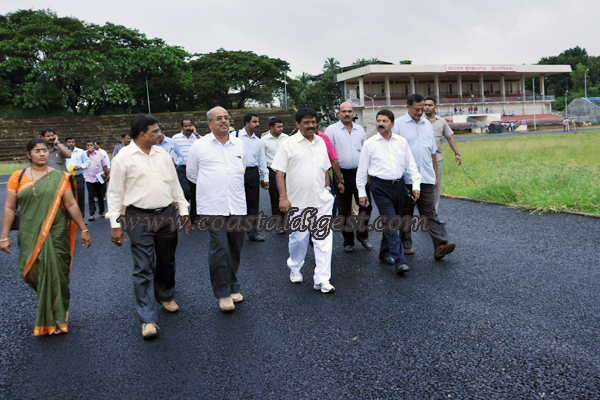
Mangalore, September 1: The state government has decided to construct a swimming pool of international standards in Mangalore, Appachu Ranjan, State Sports Minister said.
Addressing media persons after holding a meeting with representatives of various sports bodies of the district in Mangalore on Saturday, Mr. Ranjan said that he has agreed to the demand made by N Yogish Bhat, local MLA and Deputy Speaker of Legislative Assembly, of having an international standard swimming pool in the city of Mangalore. Mr. Bhat said that about 2 acres of land near Hat Hill area is being considered for the purpose.
Every district in the state will have a sports school where students would obtain necessary training and guidance related to sports from 5th to 10th std, Mr. Ranjan said. The minister also promised to construct a sophisticated stadium for indoor as well as outdoor games. Since Kodagu district specializes in Hockey, a Hockey Academy would be set up there, he said, adding that similar academies related to various sports would be set up at places which specialize in those sports. Shopping complexes would be built around stadiums wherever possible so that the income generated out of them could be ploughed back to developing the stadium and sportspersons.
Special importance is being given to the coaching circuit in the state, Mr. Ranjan said, adding that a demand has been placed before the Chief Minister to increase the number of coaches to 417 in the state from the current 93. The government looks forward to appointing coaches in every Taluk, the Minister said, stating that a junior coaches for taluks, senior coaches for districts, and directors and joint directors for divisions would be appointed. Salaries of coaches have also been increased by Rs.2,500-3,000, he said. Plans of having 2% reservation for sportspersons in government jobs are also before the government, he said, adding that attendance shortage for sportspersons in schools and colleges would be given leniency.
The Minister also informed that much like the Youth Policy, the state government would want to bring about a Sports Policy in the state in the days to come and consultations are being held with Deputy Commissioners, Vice Chancellors of Universities and other sports body representatives. Sports policies of USA and Japan have also been studied, he added. The state government aims at nurturing rural talent and the Sports Policy would help in that direction, he said.
Stating that the State Sports Ministry has been managing with whatever amount it is being allocated with, the Minister said that the prize money for Ekalavya Awards had been increased to Rs. 2 lakh this year from the earlier amount of Rs. 1 lakh. Participants from the state who took part in the Olympics were given Rs. 5 lakh each, he added. The Sports Ministry would eye at least 2% of the funds from the state budget next year, he revealed.
Prior to the press briefing, Mr. Ranjan interacted with the representatives of various sports bodies in the district. Purushottam Poojary representing the Kabaddi contingent of the district said that although Kabaddi athletes like Mamatha Poojary had made international fame, the district still lacks proper coaches and infrastructure. D M Aslam of DK Football Association appealed to the Minister to pass a resolution that the Nehru Maidan football ground should not be given as a venue to host social and political programmes so that it is exclusively used for football. Gerald D'Souza of Hockey Association said that the district lacks a proper hockey ground when at international level the game is being played at turf surfaces.
Mr. Ranjan also visited the Mangala Stadium and inspected the process of synthetic track work being carried out at the sporting venue.
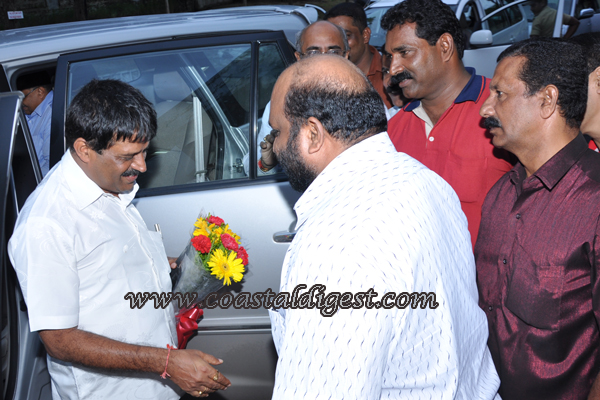
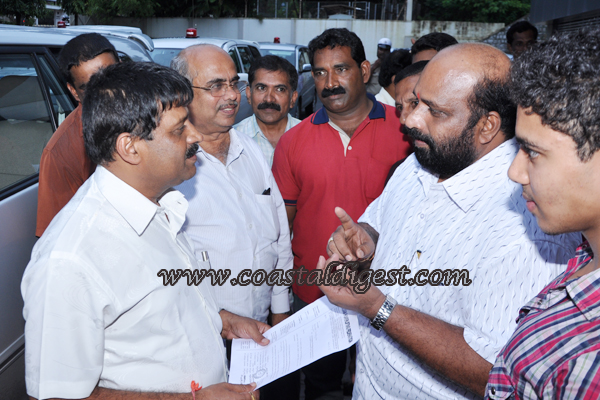
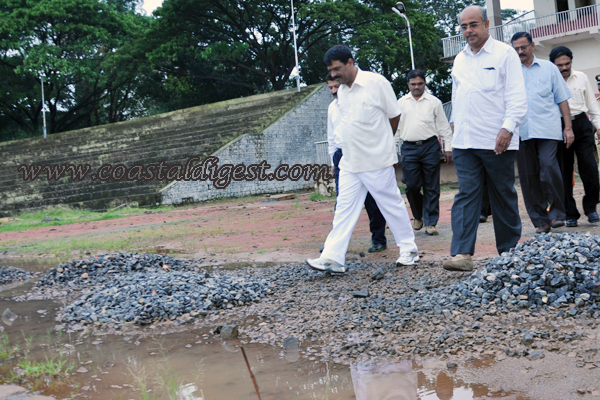
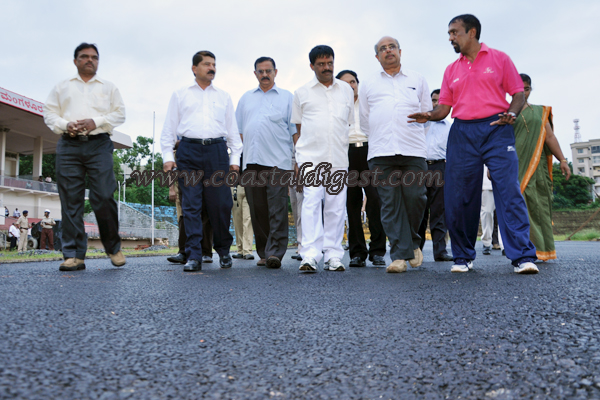
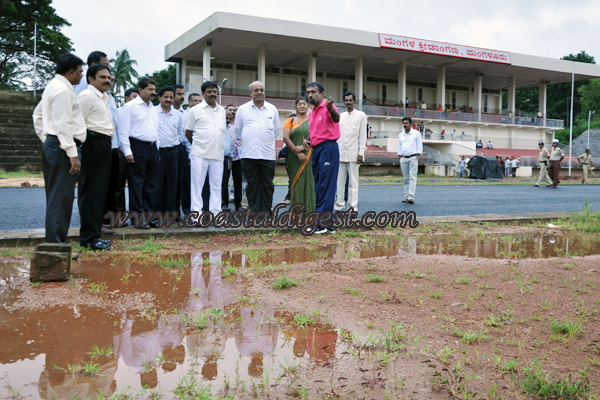





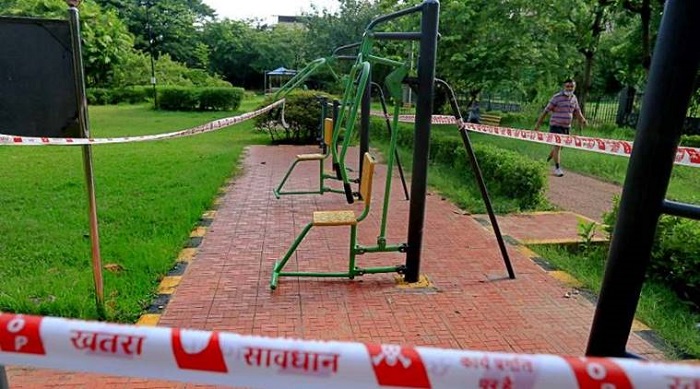
Comments
Add new comment